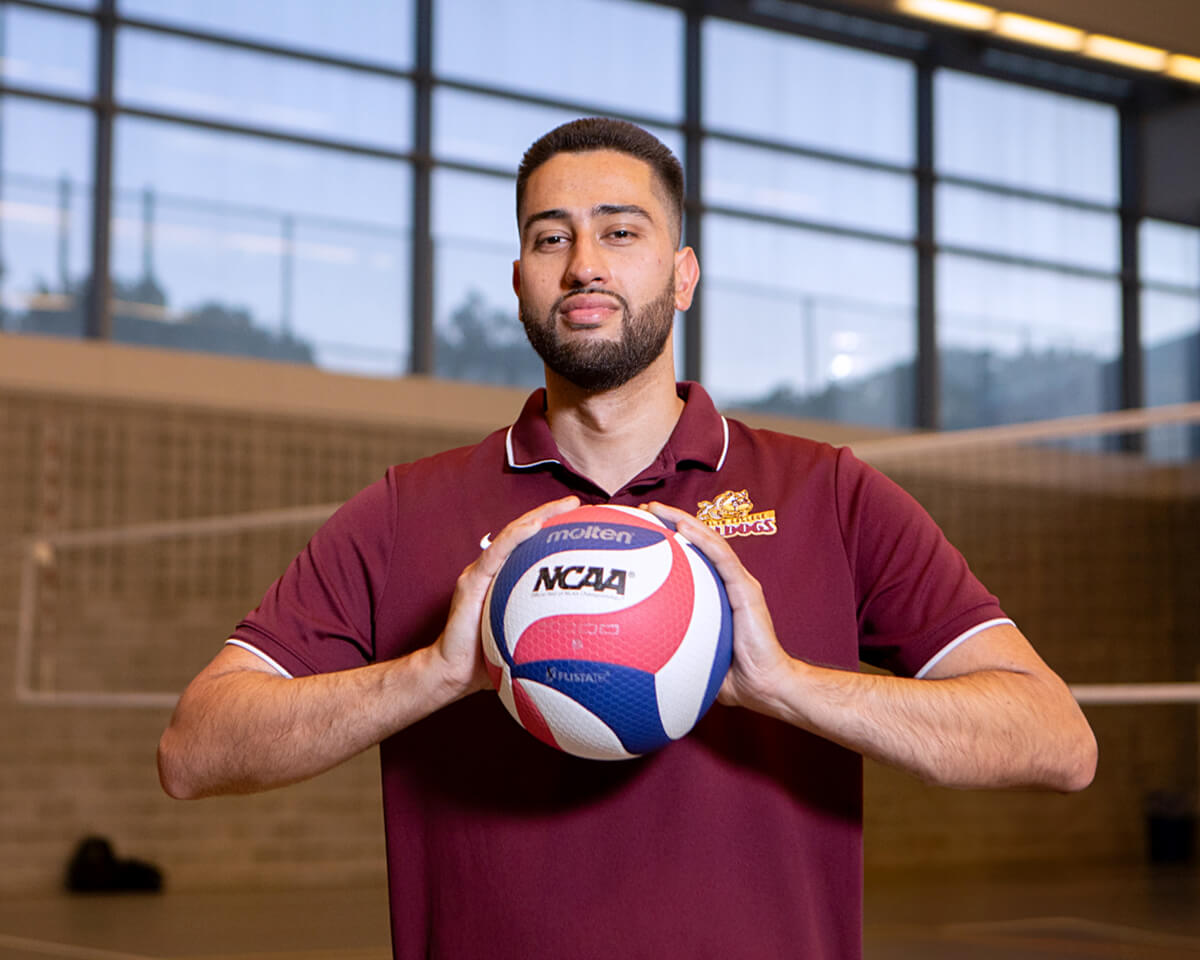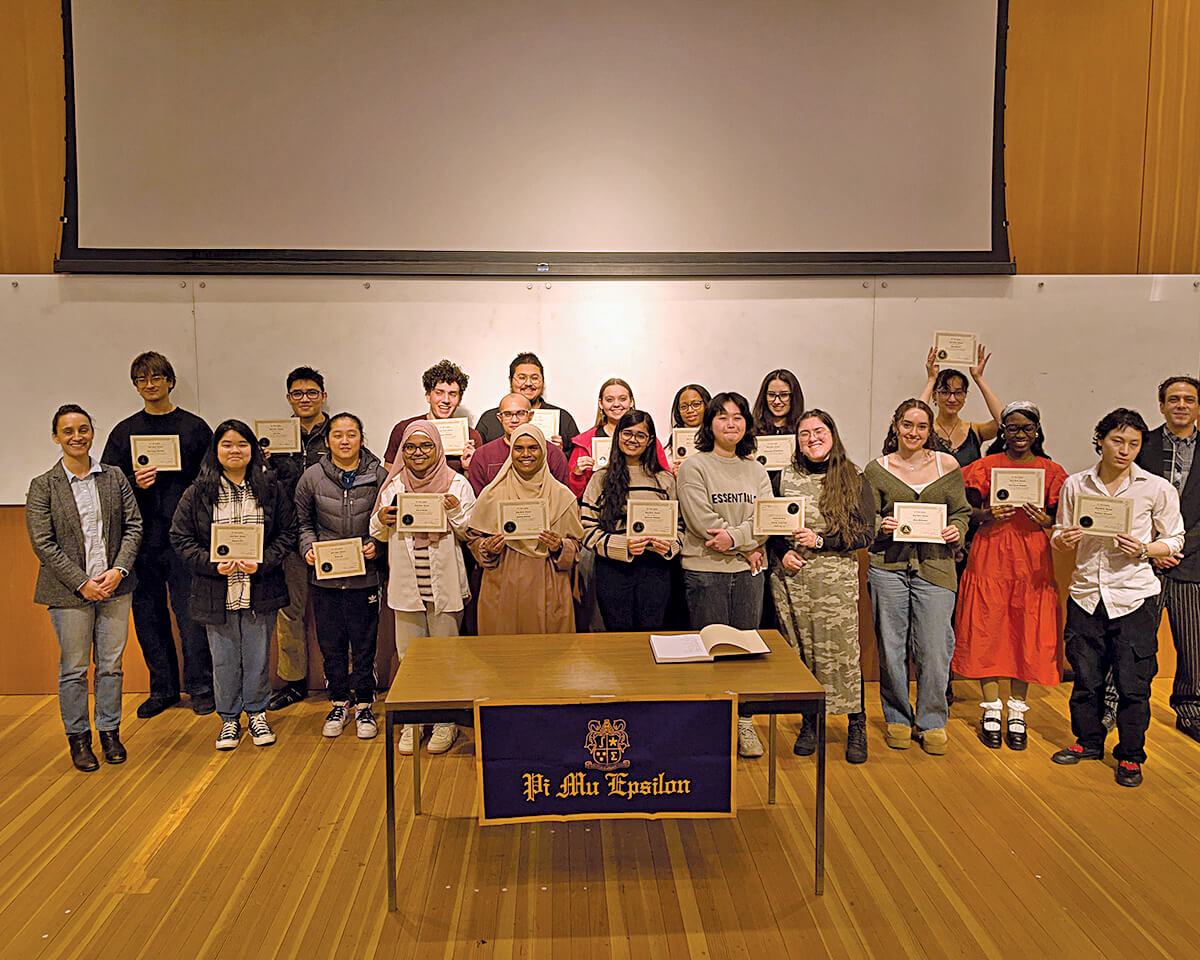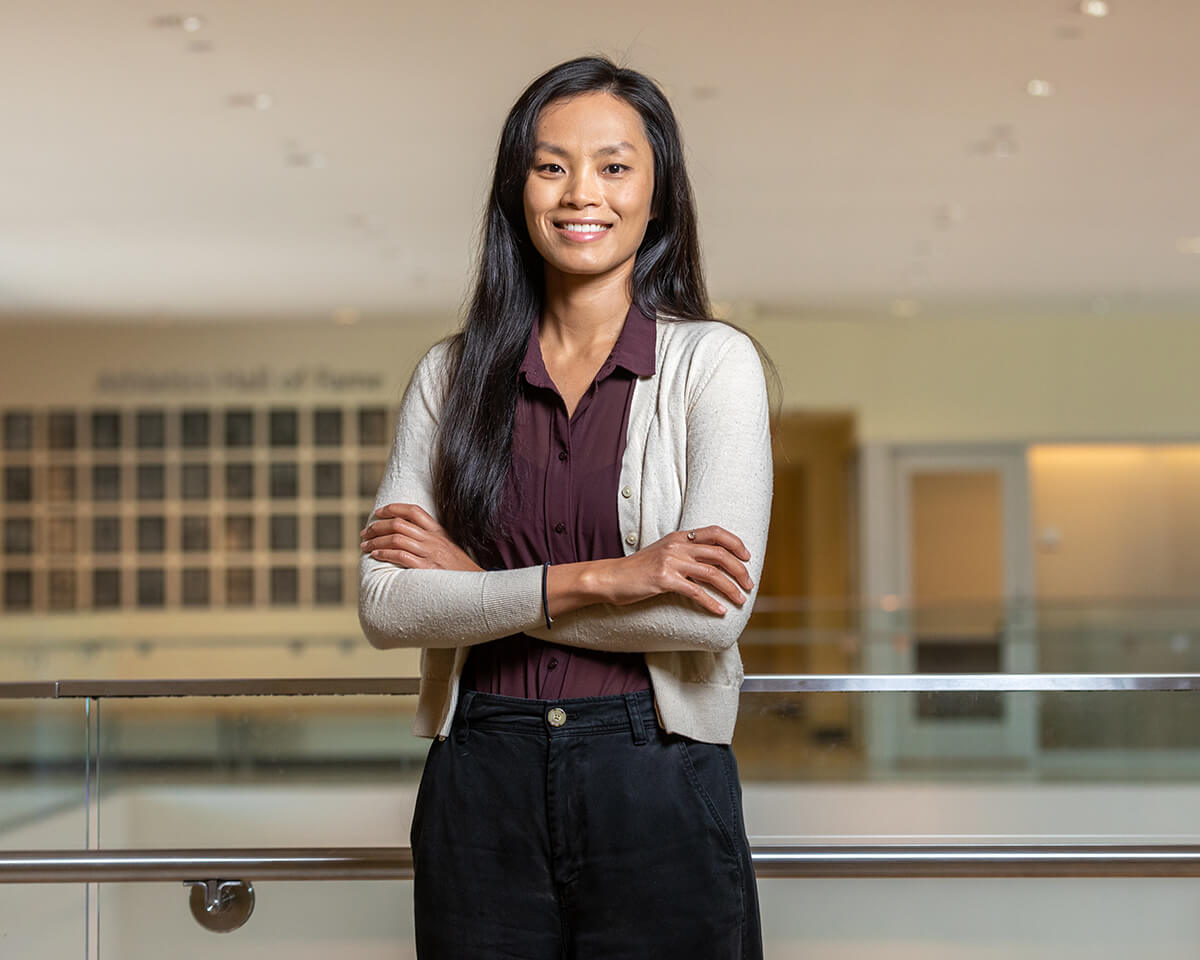To say Moaz Choudhary has made a positive impact on Bulldogs volleyball doesn’t tell half the story.
The Brooklyn native was a leader throughout his playing career, becoming team captain as a freshman and keeping the title until graduation. Dominating as a player, from 2015 to 2018, he set various team records, including as the all-time team leader in career block assists (119) and second all-time team leader in total career blocks (190).
A relentless blocker, Choudhary had multiple nine-block games, a Brooklyn College record. His contributions helped take the team to the 2017 CUNYAC semifinals. And in one of the most dominating performances in Bulldog history, he made NCAA history after setting the record with seven solo blocks in a three-set match against the College of Staten Island in 2018—a stat never before recorded in Division III or Division I history.
Returning to his alma mater in 2022 after coaching at the high school and junior high school levels, Choudhary served as an assistant coach for the Bulldogs women’s volleyball team. There, he would help the 2022 squad make their third straight CUNYAC Championship appearance and trip to the ECAC Championship Tournament.
Now, the former player and assistant coach is excited to take the men’s team to new heights, after being named head coach for the 2024 spring season.
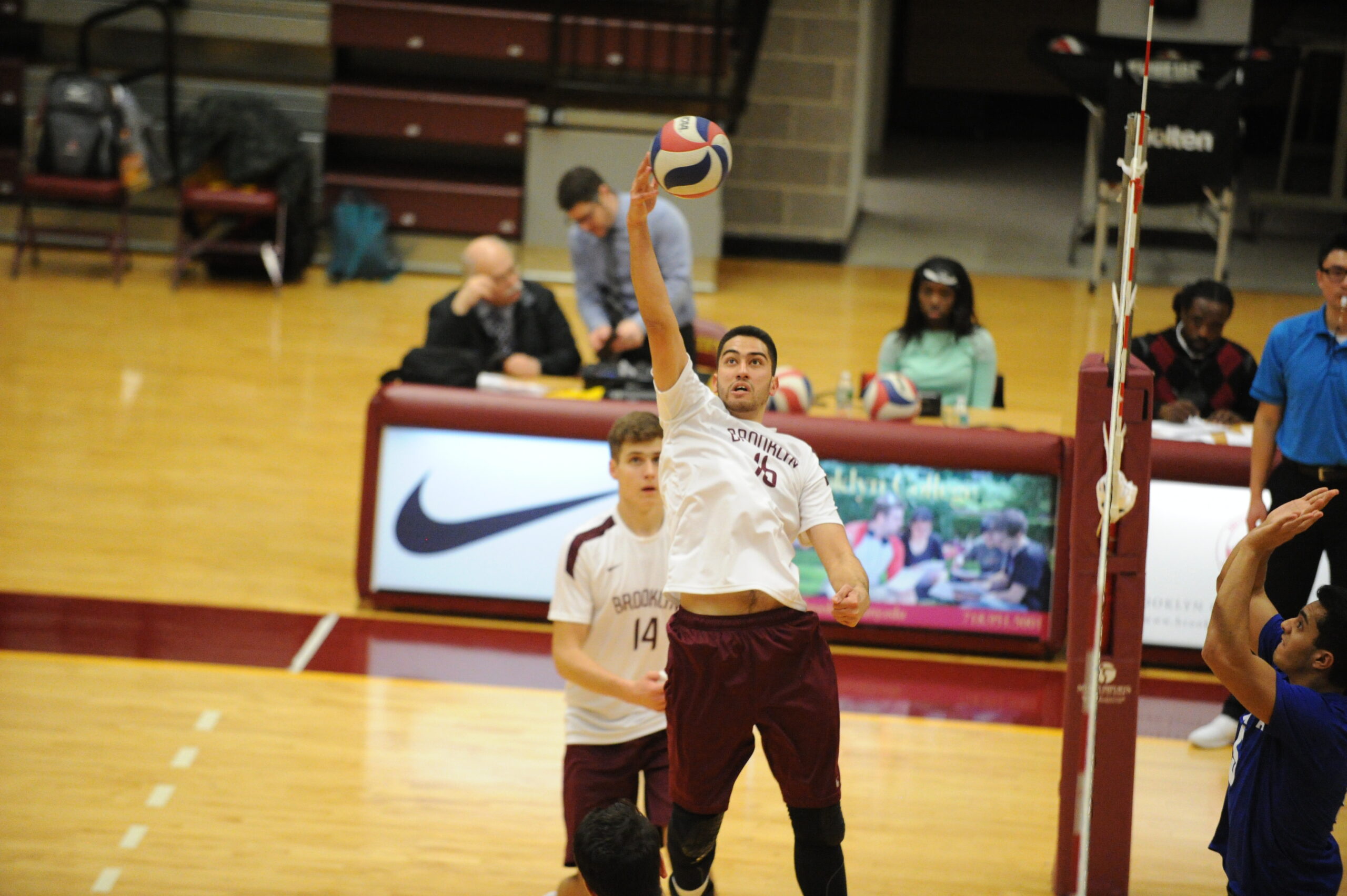
Why did you choose Brooklyn College and how did you first get involved with Bulldogs volleyball?
Brooklyn College offers a wide variety of degrees, which was perfect for me because I had no idea what I wanted to do except volleyball. I went to Edward R. Murrow High School, and Brooklyn College was just a few extra bus stops, so my commute remained about the same. Some people like a change of scenery, but I was happy to remain close.
During my junior year of high school, Murrow added a volleyball team, so I joined, and we frequently had a special volunteer guest—a player from the Brooklyn College team. We paid close attention to everything he told us. During my senior year, we had a game at Brooklyn Tech, and to my surprise the Brooklyn College coach was there, along with the entire team in uniform. It turned out they had a game there, too. I saw one of my former high school teammates on the team, and as I watched the game, I knew I wanted to be a part of that team.
As a student, you were one of the catalysts for the revival of the volleyball programs at the college. What is your advice to others who are looking to make a positive change, whether it be on a team or in their personal lives?
The work ethic you develop is what drives you to achieve your goals but remember this: Goals are not the finish line but a checkpoint; they are steps of a ladder that has no limit. You can always do more than what you think you can. Never give up and keep working towards your goals.
Due to some unforeseen circumstances in my first year in college, we only won one out of 29 games, but I never let it affect me. I tried my hardest every game and helped usher in a new era. My coaches did a fantastic job with recruiting, and just two years later we won 14 out of 26 games, the best record our program had seen in a decade—taking us to the conference semifinals. The following year, my senior year, we finished with an even better record. Had I given up or gone elsewhere, I never would have been a part of that amazing turnaround.
You hold several records for blocking. Why was that such a big part of your game?
Volleyball is a very offensive-driven sport, and because of that, I found joy in shutting other players down. Most players enjoy hyping up their home crowd, but I preferred shutting down my opponents.
But as I got better as a player, the injuries began to pile up. I had a series of back and shoulder injuries that I tried playing through, but they only got worse. I played my last two seasons with a torn shoulder that was so bad I could not raise my arm in class without pain. I did much of my everyday activities with my left hand to preserve my hitting arm. I kept the severity of my injuries a secret from my coaches and did not tell them until after my last game. My doctors and therapists all told me that I would never be able to play volleyball again, but I did not listen. I did rehab and strengthening exercises every day to keep my shoulder functional. I was forced into a solely defensive role, but I embraced it because a player should do whatever it takes for the team to win.
After my college career, I took over a year off to heal and to raise my game. I was playing in privately run gyms with semi-pro players and occasional members of various national teams. I ended up becoming a great two-way player but quit because my love for coaching was greater than playing.
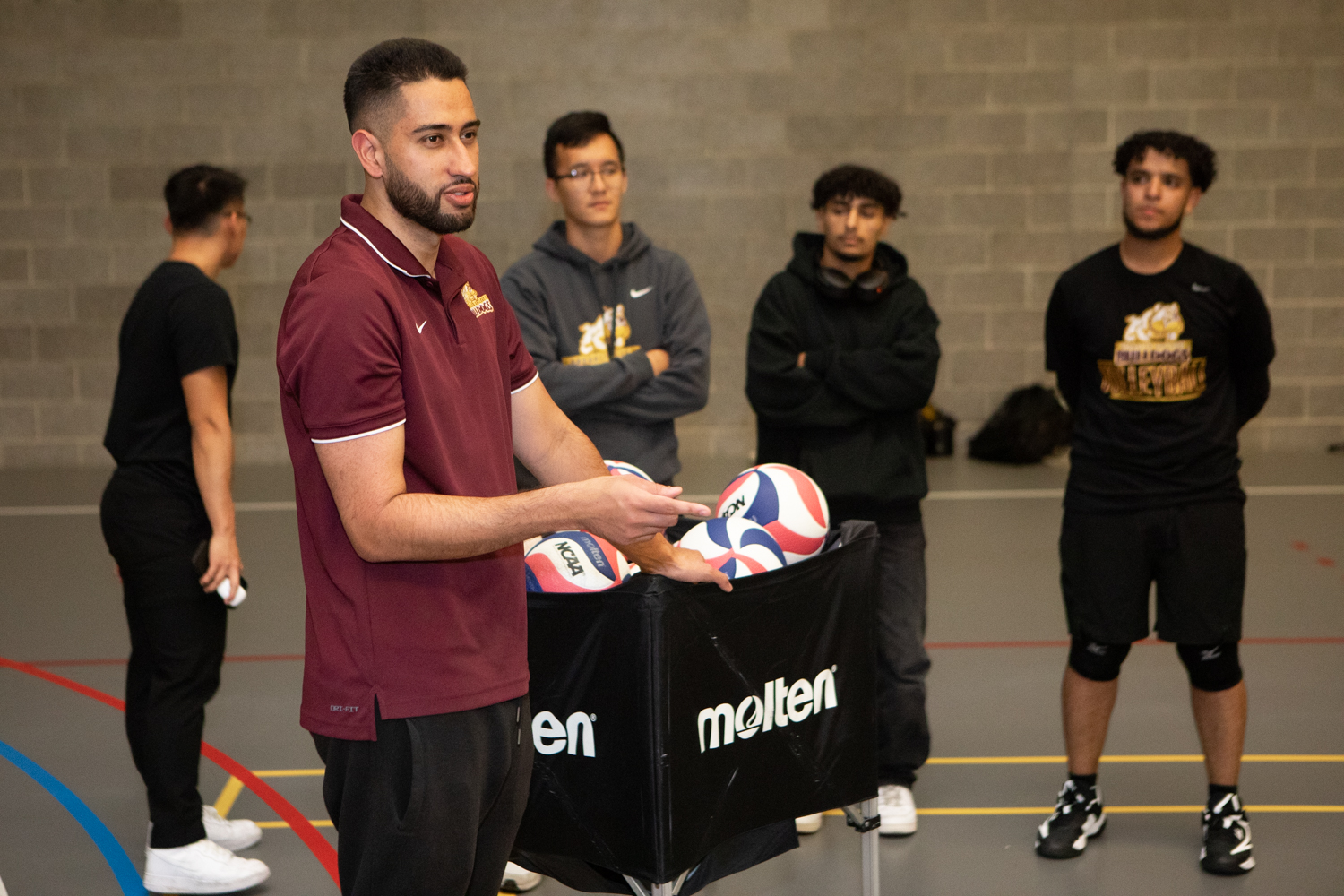
What drove you to coaching at Brooklyn College?
Inspired by the former Brooklyn College player who once did the same to me, I began coaching as a volunteer assistant at my [high school] alma mater when I was still a freshman at Brooklyn College.
Everyone feels good when they get a point or help assist someone to do something right. When you teach someone a skill and see them perform it correctly, it will always feel rewarding because you know you made that difference in their lives.
I always knew I wanted to coach at Brooklyn College. It is a great school at an affordable price, so you will get a good education without the bad debt.
What did you major in and where did that lead you in terms of your career?
I earned a bachelor’s degree in physical education and a master’s degree in sports management, both at Brooklyn College. In addition to coaching here, I am a middle school physical education teacher and an athletic director, where I teach my students the fundamentals of many sports.
To teach a child something from scratch and see them blossom is one of the most rewarding feelings. Knowledge should not be kept but spread. Just as seeds spread into the dirt, so does the passion for the sport that becomes the flowers blooming out of the soil.
I wish to take that to the next level with my Brooklyn College players—to see them take what they learned to the next phases of their lives, whether it be going pro, officiating games, or turning into a coach like me.
Return to the BC Magazine

